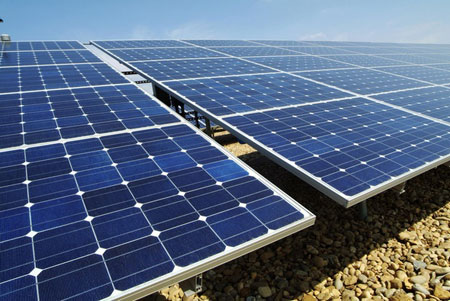You may have already heard about solar energy, one of the most sustainable ways to generate electricity for businesses and homes.
But did you know that you can install such a system in your home or business with the help of the government? Yes, it’s true!
Several countries are encouraging their citizens to adopt sustainable energy solutions, offering benefits and facilities.
In this article, we will explore how you can take advantage of these opportunities, understand the benefits of sustainable energy and, in the end, discover the best tips for implementing this technology in your home or business.

Why Choose Solar Energy?
Solar energy is one of the cleanest and most renewable energy sources available. Using solar panels, you can convert sunlight into electricity for businesses and homes, helping to reduce dependence on non-renewable energy sources such as coal and oil.
Plus, it’s a great way to save money in the long run. Once installed, a solar system can significantly reduce your electricity bill.
In addition to being sustainable, it has a positive impact on the environment. By choosing this form of energy, you contribute to reducing greenhouse gas emissions, helping to combat climate change.
Many countries, such as Brazil, the United States, Germany and Australia, are investing in incentive programs to promote the use of sustainable energy solutions.
Benefits of Solar Energy with Government Assistance
Opting for solar energy with government assistance offers several benefits. First, many governments offer subsidies and tax incentives that can significantly reduce the initial cost of installing solar panels. In some cases, these incentives can cover up to 50% of the total system cost.
Additionally, many government programs offer financing with low or even no interest rates, making it easier to pay for your investment in solar energy.
In some countries, such as the United States, it is even possible to sell excess energy generated back to the electricity grid, generating an additional source of income.
Countries Offering Incentives
Several countries around the world offer incentive programs for installing solar energy systems. In Brazil, for example, there are programs such as “Minha Casa Minha Vida”, which include financing options for solar energy and electricity for business.
In the United States, the federal government offers a tax credit of 26% of the total cost of the solar system. In Germany, the “Energiewende” program promotes the transition to renewable energy with various financial incentives.
In Australia, the government offers a rebate scheme that can reduce the cost of solar energy systems by up to 30%.
These programs not only make solar energy more affordable, but also help promote the growth of an economy based on sustainable energy solutions.
How to Get Started with Solar Energy?
Implementing solar energy in your home or business may seem like a complex task, but with the right incentives, the process becomes much simpler.
The first step is to do an energy assessment to determine how much electricity your home or business consumes and how many solar panels will be needed to meet that demand.
After carrying out the assessment, the next step is to find solar panel installation companies.
Make sure you choose a company with experience and good references. These companies will help you plan the installation, apply for government incentives, and ensure your system is working properly.
Tips for Making the Most of Government Incentives
To make the most of government incentives, it is important to be well informed and act quickly. Here are some valuable tips:
- Search available programs: Each country offers different types of incentives. Make sure you understand what options are available in your area.
- Plan ahead: Some incentive programs have application deadlines and limits. Plan your installation to ensure you can enjoy all the benefits.
- Choose a qualified company: Working solar panel installation companies can make the process of applying for incentives easier and ensure that your system is installed correctly.
- Stay up to date: Incentive policies may change over time. Stay informed about new opportunities and changes to solar energy laws.
FAQ about Solar Energy with Government Assistance
1. What is it? Solar energy is electricity generated from sunlight using solar panels.
2. What are the benefits of solar energy? Reduction in electricity bills, lower environmental impact and, with government incentives, lower initial installation costs.
3. How can I get government incentives for solar energy? Check the incentive programs available in your country or region. These programs may include subsidies, tax incentives and low-interest financing.
4. What is the initial cost to install a solar energy system? The cost can vary depending on the size of the system and location, but with government incentives, the cost can be significantly reduced.
5. Can I sell excess energy generated back to the electricity grid? Yes, in many countries it is possible to sell excess energy generated back to the electricity grid, providing an additional source of income.
Going solar with government assistance is an excellent way to save money, reduce environmental impact, and promote the use of sustainable energy solutions. By taking advantage of available incentives, you can make the transition to solar energy more affordable and worthwhile.
Now that you understand the benefits and necessary steps, it's time to act. Carry out an energy assessment, choose one of the solar panel installation companies and start planning the installation of your solar energy system.
With the tips and information in this article, you are ready to make the most of government incentives and transform your home or business into an example of sustainability.
Check out other interesting facts about recycling clicking here.
Learn how to make art by recycling, Click here.



